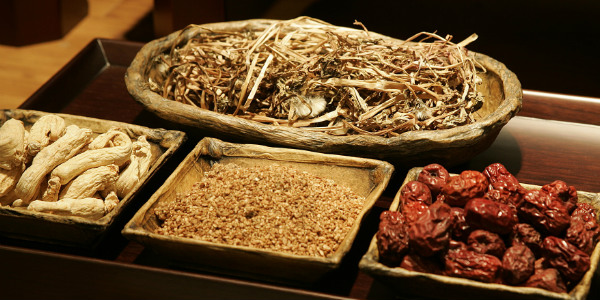Alternative medicine and your insurance: what’s the deal?
X-rays, injections, hospitals full of doctors, nurses, and beeping technology; the Western approach to medicine is a familiar image, and one that is found frequently around the world. What many of us in the West can forget, however, is that our way of treating ill health and fixing ailments isn’t the only way. In fact, many aspects of the differing forms of alternative medicine were also used in early Western approaches in the past.
When we talk of alternative medicine, people can quickly become skeptical. Considering how important our health is, it’s natural and a good thing to have some reservations about unfamiliar approaches. What many alternative medicine practitioners will tell you is that their chosen perspective on health and wellbeing comes with decades, or even centuries of history, and is the first choice for many different types of people around the world.
This week, Pacific Prime Thailand discusses some common forms of alternative health, and just how your insurer might treat your decision to seek treatment via alternative medicine.
Types of alternative medicine
While there are a wide range of different approaches to healing that can come under “alternative medicine”, there are three main types that are among the most relevant and popular in Thailand.
Traditional Chinese Medicine
Commonly shortened to TCM, Traditional Chinese Medicine encompasses a wide range of traditional practices that have been developed across Asia for more than 5,000 years. Based on Taoist philosophy, TCM views the human body differently to Western medicine, and aims to achieve a harmonious balance within it to achieve health and well being. Moderation and prevention are also key aspects to TCM.
There are a number of common therapies that TCM offers that are well known around the world. The approach includes the following components:
- Acupuncture
- Cupping therapy
- Qigong
- Herbal medicine
- Dietary and nutritional advice
Such services have been available in Thailand since its legalization in the early 2000s. The government has also implemented regulations governing the practice licenses of TCM doctors. For more information about TCM practitioners in the country, contact the Medical Council of Thailand.

Tibetan Medicine (Sowa-Rigpa)
According to The Phuket News, Tibetan medicine (also known as Sowa-Rigpa) approaches have been growing in popularity in Thailand. Its draws upon both TCM as well as India’s Ayurvedic system, and is alleged to be contained within some 2,000 textbooks and the messages of Buddha. Again, religion plays an important part of the Tibetan perspective of health and wellbeing.
Tibetan medicine physicians rely on traditional methods of detecting and diagnosing illness, such as through physical examination of the pulse, visually assessing a person’s tongue, and analysing urine samples. Tibetan alternative medicine solutions can include:
- Acupuncture
- Bloodletting
- Moxibustion
- Medicated baths
- Herbal medicines
- Cold/hot compresses
The difference Tibetan medicine has with TCM is that it is less established and has few governing bodies around the world. Unlike TCM, you are unlikely to find a state-involved regulatory body that ensures professional levels of physician and treatment standards.
Ayurveda
Ayurveda is a Sanskrit word that means “the wisdom of life” or “the knowledge of longevity”, and has its roots in India’s corner of South East Asia. By Western standards, it is sometimes considered a pseudoscience or protoscience, however there are therapies and practices that have been integrated from this alternative medicine approach into mainstream Western practices.
Like TCM, you can expect Ayurveda practitioners to assess patients using traditional observational and physical examinations, as well as through questioning about complaints and symptoms. When it comes to treatments, this approach can suggest:
- Herbal medicine
- Panchakarma (detoxification through massage, steam, induced vomiting or laxative use, enemas, or bloodletting)
- Dietary and nutritional advice
- Shirodhara (medicated oil dripping)
- Yoga
Again, it can be difficult to find a state-involved governing body like TCM enjoys, especially in Thailand. However, there are some global organizations that you can contact to learn more about this alternative medicine.
Naturopathy
The West is not without it’s own form of alternative medicine that elects to use methods contrasting to those you would expect in a hospital or General Practitioner’s office. Naturopathy is a system of alternative healing based on the theory that diseases and illnesses can be treated without the use of modern drugs. In it’s place, naturopaths promote control of diet, exercise, and massage to becoming and staying healthy.
Naturopathy does borrow from other traditional medical approaches (particularly TCM and Ayurveda), but can include the following therapies:
- Magnetotherapy
- Physiotherapy
- Herbal baths
- Acupressure and reflexology
- Herbal medicines
- Yoga
- Colour therapy
Naturopathy is also viewed by modern Western academia with some skepticism with many considering it to be a pseudoscience. However, there are a growing number of people in both the East and West who swear by the benefits of naturopathy.

Choosing alternative medicine over Western approaches
When it comes to your health, you should have the right to choose where and how you are treated. However, when it comes to insurance, options can be limited; the academic review and scientific testing of Western medicine is often why insurers will prefer or insist on clients seeking treatment from modern hospitals. Some might see this as a bias, but it’s simply a case of insurers hedging risk against what’s familiar.
Some alternative medicine practices, such as TCM, can be covered by insurers. Particularly in Asia, insurers have recognized that not all people put complete stock in Western medicine approaches and, as such, can include coverage for particular treatments in their health policies. Certain naturopathic treatments can also be covered, such as physiotherapy. The key is to check with your insurer before you purchase a plan, or book an alternative appointment.
Generally, it can more difficult to find plans that will cover Ayurveda and Tibetan health approaches. This can be frustrating for those who believe in their healing powers, however insurers have to consider the risk of paying for treatments that are less researched and less regulated than more mainstream practices. There is still a good reason to hold health insurance, even if you subscribe to an alternative medicine regime.
Unless a plan explicitly excludes illness or injury arising from an alternative treatment, insurance companies will still provide coverage should something go wrong. For example, a herbal bath that sets off a skin allergy and requires you to subsequently visit and file a claim at a Western hospital shouldn’t be denied. Always check your policy details, however, just to be sure.
Finding the right Thai insurance plan to cover all possibilities
If alternative medicine is your preferred method of health and well being treatment, then you have that choice available to you. We make no judgment about the effectiveness of Western or other approaches to medicine, but we do have in interest in ensuring the costs of your treatment can be covered by insurance. Whether you choose a hospital doctor or a traditional healer, you should always secure private health insurance.
To learn more about your health insurance options, get in touch with our friendly team today.
- Injury insurance for Muay Thai training in Thailand - November 4, 2022
- Health insurance brokers vs agents vs health insurers in Thailand - March 19, 2021
- New infographic on international insurance inflation around the world - May 28, 2018





Comments
Comments for this post are closed.
We'll notify you
when our team replies!